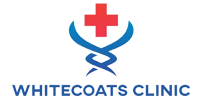What is the management for high blood pressure treatment?

The best high blood pressure treatment depends on various factors such as the severity of the condition, the presence of other health issues, age, and individual response to medications.
Here are some common approaches to managing high blood pressure
- Lifestyle Modifications:
Dietary Changes: A diet rich in fruits, vegetables, whole grains, lean proteins, and low-fat dairy products can help lower blood pressure. The DASH diet, which emphasizes these food groups while limiting sodium intake, is particularly effective in reducing blood pressure.
Weight Management: Excess weight puts additional strain on the heart and blood vessels, leading to high blood pressure. Losing even a small amount of weight can have a significant impact on blood pressure reduction.
Regular Exercise: Engaging in moderate-intensity aerobic exercise for at least 150 minutes per week, or vigorous-intensity aerobic exercise for 75 minutes per week, can help blood pressure treatment. Strength training exercises should also be incorporated into the routine.
Limiting Alcohol and Caffeine: Excessive alcohol consumption can raise blood pressure, so it’s recommended to limit alcohol intake. Similarly, while moderate caffeine consumption is generally considered safe, excessive caffeine intake may lead to a temporary spike in blood pressure treatment.
Stress Management: Stress Management can contribute to blood pressure. Stress-reduction techniques such as meditation, deep breathing exercises, progressive muscle relaxation, and yoga can help lower blood pressure and promote overall well-being.
- Regular Monitoring and Follow-Up:
Regular blood pressure monitoring at home or in a healthcare setting is essential to track progress and make adjustments to the high blood pressure plan as needed.
Follow-up appointments with a healthcare provider are important to assess the effectiveness of blood pressure, address any concerns or side effects, and make any necessary changes to the management plan.
Individuals with high blood pressure need to work closely with their healthcare providers to develop a comprehensive treatment plan that incorporates lifestyle modifications and, if necessary, medications to achieve and maintain optimal blood pressure control. Compliance with the treatment plan and regular monitoring are key to successfully managing high blood pressure and reducing the risk of complications.
The requirements for treating high blood pressure, typically include:
Diagnosis: A diagnosis of high blood pressure usually requires multiple blood pressure readings that consistently measure 130/80 mm Hg or higher.
Assessment of Risk Factors: Healthcare providers assess various risk factors such as age, family history, lifestyle habits, and existing health conditions to determine the appropriate treatment approach.
Lifestyle Modifications: Initial treatment often involves lifestyle changes such as adopting a healthy diet, increasing physical activity, limiting alcohol consumption, quitting smoking, and managing stress.
Medications: If lifestyle modifications alone are insufficient to lower blood pressure, medications may be prescribed. The choice of medication depends on factors such as the severity of hypertension, the presence of other health conditions, and individual response to blood pressure treatment.
Regular Monitoring: Blood pressure should be regularly monitored to track progress and adjust treatment as needed. This may involve home blood pressure monitoring as well as follow-up appointments with healthcare providers.
Compliance: Adherence to the prescribed treatment plan is crucial for effectively managing high blood pressure and reducing the risk of complications. Patients are often advised to take medications as directed, make necessary lifestyle changes, and attend follow-up appointments.
Ongoing Management: High blood pressure is typically a chronic condition that requires ongoing management. This may involve periodic adjustments to the treatment plan based on changes in blood pressure levels, overall health status, and response to blood pressure treatment.
Individuals with high blood pressure need to work closely with their healthcare providers to develop a comprehensive treatment plan tailored to their specific needs and circumstances.
Regular communication, monitoring, and collaboration between patients and healthcare providers are key to successfully managing high blood pressure and reducing the risk of associated complications.


